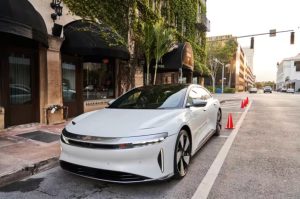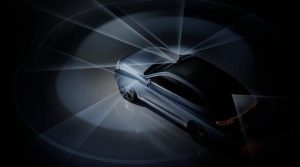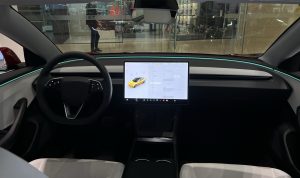Chery’s Exports Surge While Sales of New Energy Vehicles Lag Behind
8 min read
Conventional fuel vehicles are gaining strength while sales of new energy vehicles are falling behind.

Chery’s Exports Thriving, While Sales of New Energy Vehicles Lag Behind
Exports are dominating Chery’s sales landscape. According to official figures from Chery Holdings Group, the group’s sales reached 150,000 vehicles in July, a year-on-year increase of 14.4%, setting a new historical record. From January to July, cumulative sales for Chery Group reached 892,000 vehicles, a year-on-year increase of 47%. Among these, exports played a significant role in driving Chery’s sales growth. According to data from the China Association of Automobile Manufacturers, Chery exported 471,000 vehicles from January to July this year, accounting for 52.8% of its overall sales and doubling from the same period last year, placing it second only to SAIC Motor.
However, the proportion of Chery’s new energy vehicles is declining. According to wholesale sales data from the China Passenger Car Association, it’s estimated that Chery sold around 8,500 new energy vehicles in July and a total of 53,600 vehicles from January to July, a significant drop compared to the same period last year. Last year’s July sales report from the China Passenger Car Association indicated that Chery sold 133,000 new energy vehicles from January to July in 2022. The slowdown in the growth of the A00-level pure electric vehicle market, which Chery’s new energy products heavily rely on, is one of the main reasons for this decline.
In the midst of this transformation towards electrification and smart technology, Chery’s collaboration with Huawei on the “Luxeed” all-electric coupe may help alleviate the challenges it faces in its new energy vehicle sector. Chery stated to Time Finance, “Chery LUXEED Wisdom World is Chery’s brand-new intelligent luxury new energy vehicle brand. LUXEED is a combination of Luxury and Speed, and this brand series of vehicles are developed in deep collaboration with Huawei’s technology.”
Currently, Chery is searching for new opportunities. The brand has achieved over 100,000 monthly sales for 14 consecutive months. From January to July, cumulative sales for Chery Group reached 892,000 vehicles, a year-on-year increase of 47%. In terms of individual brands, Chery brand sold 649,723 vehicles from January to July, a year-on-year increase of 41.3%. Xingtu brand sold 53,702 vehicles, a year-on-year increase of 133.2%. JieTu brand sold 133,893 vehicles, a year-on-year increase of 72.2%.
According to the China Passenger Car Association’s data, Chery ranked second in wholesale sales volume in July, following only BYD.
While conventional fuel vehicle sales are impressive, there is a stark contrast as Chery Group has not released its sales figures for the new energy sector in recent months.
Time Finance sent a letter of inquiry to Chery regarding its new energy vehicle sales data and its transformation measures, but no response was received as of the time of writing.
According to the China Passenger Car Association’s data, it’s estimated that Chery sold around 8,500 new energy vehicles in July and a total of 53,600 vehicles from January to July, a significant drop compared to the same period last year. The China Passenger Car Association’s sales report from July last year showed that Chery sold 133,000 new energy vehicles from January to July 2022.
Last year, Chery Group achieved a 112.9% year-on-year increase in new energy vehicle sales. In 2022, Chery Group sold 233,000 new energy vehicles. Chery Group stated, “The star model, the Little Ant, became the only high-end electric mini car to surpass 300,000 in sales in China; the Chery QQ Ice Cream, on the market for only a year, surpassed 110,000 in sales.”
It’s apparent that Chery’s new energy vehicles heavily rely on micro electric cars.
According to the China Passenger Car Association’s data, Chery ranked sixth in the new energy vehicle manufacturer sales ranking with 220,000 vehicles sold in 2022. The QQ Ice Cream, which is part of Chery Group’s new energy vehicle product structure, saw a sales surge of 661.3% with 96,500 units sold, ranking seventh on the new energy sedan sales ranking for 2022. The Chery eQ followed closely with 94,000 units sold, ranking seventh. The combined sales of these two vehicles surpassed 190,000 units, accounting for 86% of Chery’s new energy vehicle sales.
In Chery’s new energy vehicle product structure, the QQ Ice Cream and Little Ant, both positioned as A00-level pure electric cars, have become the mainstays. Their prices are both below 100,000 RMB, with the QQ Ice Cream starting at 29,900 RMB and the Little Ant starting at 65,000 RMB.
The growth rate of the A00-level pure electric vehicle market has slowed down this year. According to data released by the China Passenger Car Association in July, the wholesale sales of A00-level pure electric vehicles were 85,000 units, a year-on-year decrease of 35%, and the market share dropped by 13% year-on-year.
Meanwhile, in the A00-level pure electric vehicle market, the QQ Ice Cream faces strong competition from models like the Wuling Hongguang MINI EV, Changan BenBen EV, BYD Seagull, and Geely Panda Mini.
Zhang Yi, Chief Analyst at AI Media Consulting, stated to Time Finance, “This year, the sales growth of pure electric vehicles from relatively mid- to low-end brands in the Chinese automotive market is under pressure.” He also mentioned that, based on the data monitored by AI Media, mid- to low-end new energy vehicles are mostly utilized in ride-hailing services, while mid- to high-end vehicles will be the future development path for new energy vehicles. Therefore, whether Chery can achieve a high-end transformation is crucial.
Price War Fails to Boost Chery’s New Energy Vehicle Sales, Dropping Out of Top Ten
“This year is the most ‘inward-looking’ year for China’s automotive industry. If this ‘inward-looking’ benefits consumers and the industry, then let the ‘inward-looking’ be even more intense!” At the Chery Auto Mars Architecture Super Hybrid Platform launch in February this year, Li Xueyong, Assistant General Manager of Chery Auto and General Manager of Chery Auto Marketing Company, declared.
In March and August, Chery New Energy successively launched promotional campaigns. In March, prices of Chery’s new energy models were adjusted downwards, with the highest discount of up to 9,000 RMB for the Little Ant, 4,000 RMB for the QQ Ice Cream, and 5,000 RMB for the Unlimited Pro. In August, Chery New Energy launched subsidies of up to 100 million RMB.
However, the sales boost from these price reductions seems to be insignificant according to the monthly sales figures for the three products displayed by DPCA. The monthly sales volumes for QQ Ice Cream, Little Ant, and Unlimited Pro hovered around 5,000 units, 2,000 units, and 100 units, respectively.
While Chery’s sales are declining, its new energy vehicles also face challenges related to product safety.
According to an announcement from China’s State Administration for Market Regulation on August 18th, Chery Auto officially filed a recall plan. It will recall a total of 20,063 Chery eQ1 (also known as the Little Ant) electric vehicles produced between December 3, 2016, and February 9, 2018.
Chery stated that due to software strategy issues in the battery system, some vehicles within the recall range will experience increased internal cell voltage differences in the power battery after long-term frequent fast charging or long-term parking. If the voltage difference exceeds the design value, it may cause the vehicle to limit power and, in extreme cases, result in a high-voltage discharge, leading to a loss of vehicle power and posing a safety hazard.
With the contraction of the micro electric vehicle market share, increasing competition from rivals, and product recall issues, Chery’s new energy vehicle sales have plummeted. According to data from DPCA, as of July this year, QQ Ice Cream sold 31,000 units, and Little Ant sold 12,600 units. During the same period last year, they sold 63,000 units and 57,000 units, respectively.
The collapse in sales of these key models has led to Chery dropping out of the top ten in the China Passenger Car Association’s retail sales ranking for new energy manufacturers from January to July.
Collaboration with Huawei to Soar Again
Undoubtedly, the transformation in the new energy sector is an urgent matter for Chery Group. It’s clear that Chery Group is launching a series of new strategies, technologies, brands, and products in the new energy field.
In early August, Huawei’s Executive Director and CEO of the Consumer BG and CEO of the Intelligent Car Solutions BU, Yu Chengdong, revealed the first smart electric coupe jointly developed with Chery. “The first Huawei Smart Selection electric vehicle will be the first to be equipped with HarmonyOS 4, and the new car will be introduced this quarter,” said Yu Chengdong.
According to the image, the new car is labeled “LUXEED.” Chery stated to Time Finance that “LUXEED Wisdom World is a brand-new intelligent luxury new energy vehicle brand under Chery. LUXEED is a combination of Luxury and Speed, and this brand series of vehicles are developed in deep collaboration with Huawei’s technology, giving new energy vehicles a luxurious design and high-performance driving experience. LUXEED Wisdom World is under the responsibility of Chery’s EH Division.”
“LUXEED is like the BMW of electric vehicles.” Gao Xinhua, Executive Deputy General Manager of Chery Auto and Dean of the Automotive Engineering and Technology Research Institute, said in an interview recently.
With a new brand that aims to compete with BMW in the electric vehicle space, it’s clear that Chery is determined to soar.
“A brand without a high-end brand is really pitiful, and it may not even have a future.” Yin Tongyue, Chairman and Party Secretary of Chery Holdings Group, stated in an interview on August 17th.
In fact, before partnering with Huawei, Chery attempted to break into the high-end market multiple times, but its upward path was challenging. Chery introduced the RuiLin, Qoros, and Xingtu brands, which were positioned as mid-to-high-end brands. RuiLin ended in failure, Qoros was transferred by Chery, and Xingtu’s prices did not exceed 250,000 RMB, failing to gain traction in the market over 300,000 RMB. As a reference, the starting price for high-end models previously calculated by DPCA is 300,000 RMB.

Image source: Chery
In a research report, Minsheng Securities pointed out that Chery’s independent brands mainly cover the market of vehicles priced below 200,000 RMB. According to Sohu Automotive data, Chery’s average vehicle price in China increased from 60,000 RMB in 2008 to 112,000 RMB in 2022.
In the context of the latest push by domestic independent brands towards the high-end market, BYD has incubated brands like Yangan, with prices exceeding one million RMB. Geely is targeting the 300,000+ RMB market with its Zeekr brand. New players like NIO and Xpeng are aiming for the high-end new energy market, with monthly sales crossing the threshold of 10,000 units and gradually establishing themselves.
Chery urgently needs to prove itself in the high-end market. Before the latest news about LUXEED Wisdom World, in April this year, Chery Group’s high-end brand Star Journey (Xingtu) launched a new energy product line called STERRA.
Gao Xinhua stated that the Star Journey STERRA series is focused on comfort and can be compared to the electric version of Mercedes, while LUXEED Wisdom World is comparable to the electric version of BMW. Both belong to Chery Group and target different customer groups.
Currently, Chery is performing strongly in the market, making a big push in the new energy sector with the iCar, the mid-to-high-end Star Journey STERRA, and the luxury new energy vehicle LUXEED Wisdom World. Chery is trying to shed the “low-end” label. However, how to clarify the positioning between different brands, how to establish distribution channels and customer operations, and how to collaborate and compete with Huawei still require answers from Chery.
Zhang Yi believes that for Chery, cooperation with Huawei is a significant boost, and Chery is expected to enhance its brand image and technological capabilities.
As Chery strives to break into the high-end market, the question remains: can they clear the obstacles on the road to success?



